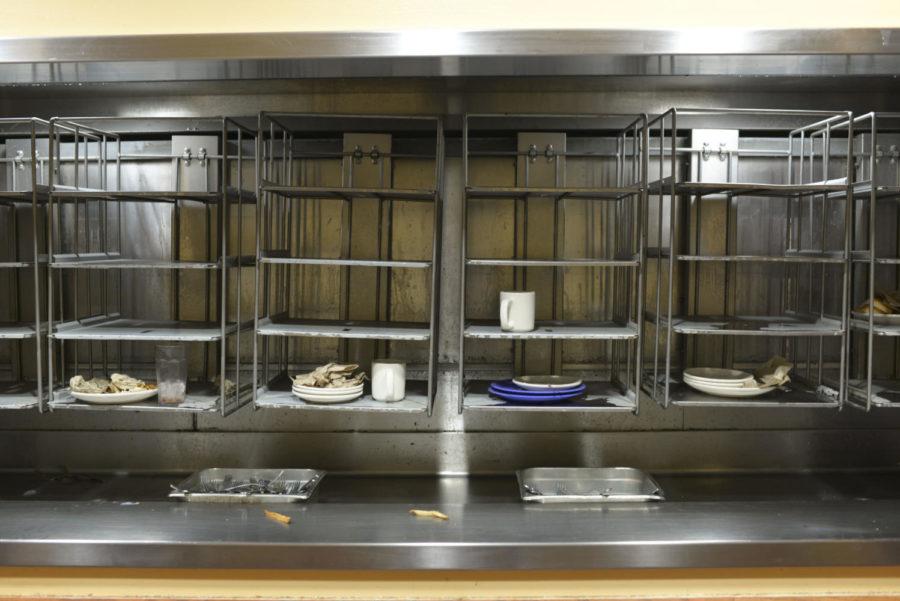Joe’s decision to dumpster dive for the first time was based on pure impulse. It helped that he wasn’t completely sober.
“I wasn’t really looking for anything, I was a little bit drunk and I saw the dumpster and thought, ‘Hmm, I bet there’s some good stuff in there,’” he said.
Joe — a junior psychology major at Pitt who asked his last name be omitted for privacy — has gone scavenging in dumpsters, trash cans and on sidewalks multiple times. Finds of his include lentils and a sealed can of beans, which his roommates comically referred to as “dumpster beans.”
“I don’t really get grossed out that easily, so it works,” he said.
For Joe, dumpster diving is a way to make use of perfectly edible food other people or stores toss.
“Grocery stores will often throw away a lot of stuff the day before it expires or the day it expires, and those are generally on the safe side,” Joe said. “They’re probably good for a couple days after that expiration date.”
Joe described dumpster diving for him as more of an impulsive action to see what he can find than something he needs to do to survive, but he could see the financial and sustainable option it provides.
“[I’d dumpster dive again] if I was in a place financially where I needed to eat and couldn’t afford food and didn’t have any other resources,” Joe said.
While some financially independent and struggling students may resort to that, others turn to places such as food pantries and soup kitchens. These places usually get food intercepted before being tossed in the trash.
Food Recovery Heroes — founded on campus in 2013 — is Pitt’s chapter of the Food Recovery Network. The organization encourages college students to recover uneaten perishable food on campus and donate it in an attempt to mitigate the issue of food waste.
Food Recovery Heroes recovers uneaten food from establishments such as the Oakland Bakery and the kosher section of Market, according to Emily Hanna — a senior computer science major and president of the group. Volunteers then bring the recovered food to Market Central, where they store it in freezers until they eventually transport it to places like the Pitt Pantry, the Jubilee Soup Kitchen and School 2 Career.
“It kills two birds with one stone. You’re redirecting food waste to help people that need food. There is no downside,” Hanna said.
During the club’s first year, members recovered 1,060 pounds of leftover food. Now, the club has approximately 30 active volunteers who participate in the pickup, transfer, and drop-off of recovered food. Last year alone, Food Recovery Heroes was able to recover more than 7,000 pounds of food.
“We talked about expanding our operation to The Perch,” Hanna said. “We hope to stay above 7,000 pounds.”
Hanna attributes the organization’s success to an increase in membership, pickup locations and a strong partnership with the Sustainability Coordinator at Market Central, Nick Goodfellow.
A Pitt alumnus who graduated in 2015, Goodfellow creates and oversees the sustainable initiatives implemented in the University’s dining halls including audits of the amount of food wasted in Pitt dining halls.
“Food waste audits are huge endeavors, we’re [in Market or Perch] from 7 a.m. until 1 a.m. collecting food waste and weighing how much we get,” he said.
According to Goodfellow, the audit’s results reveal that Pitt’s dining halls create 6,000 pounds of food waste per week. Over the course of the semester, this amounts to 0.16 pounds to 2.5 ounces of waste per student — approximately 48 tons of food waste in total.
“I literally have problems understanding how much food that is,” Goodfellow said.
Goodfellow and his coworkers involved with sustainability at Pitt are working on preventing food from becoming waste in the first place. Some ways in which they’ve cut down on waste include encouraging people to ask for the food they want specifically on their plate to keep unwanted sides from being tossed out, he said.
“We’re hoping to eventually move toward a style of serving where food is separated, like the chicken and peas are on different plates and you take just what you want,” he said.
Goodfellow said the Pitt Office of Sustainability has been working on composting more of the food waste on campus. They offer to compost food at catered events on campus and recently set up a composting bin at farmers markets for people to dump their food waste in.
“There’s a demand from students who want composting available in dorms and staff who wants it in offices, so we’re looking to work with facilities management on that,” he said.
Beginning in January 2017, Pitt dining began composting all food waste at The Perch. At Market, food waste for the past two years has been processed through a digester that dissolves the waste into gray water.
“It essentially mimics the stomach, breaks down the food waste over 24 hours into fine particles, flushes it into a sewer, and then gets sent to a water treatment plant,” Goodfellow said. “It’s pretty good, clears up space on the loading dock.”
Goodfellow said simply throwing food in landfills causes too much environmental harm by contributing large amount of methane to the atmosphere. But food waste groups are helping to change that.
“Because of networks like Food Recovery, so much food is being saved and environmental and social issues are being addressed,” he said. “A lot less food is being tossed. Sorry dumpster divers.”


